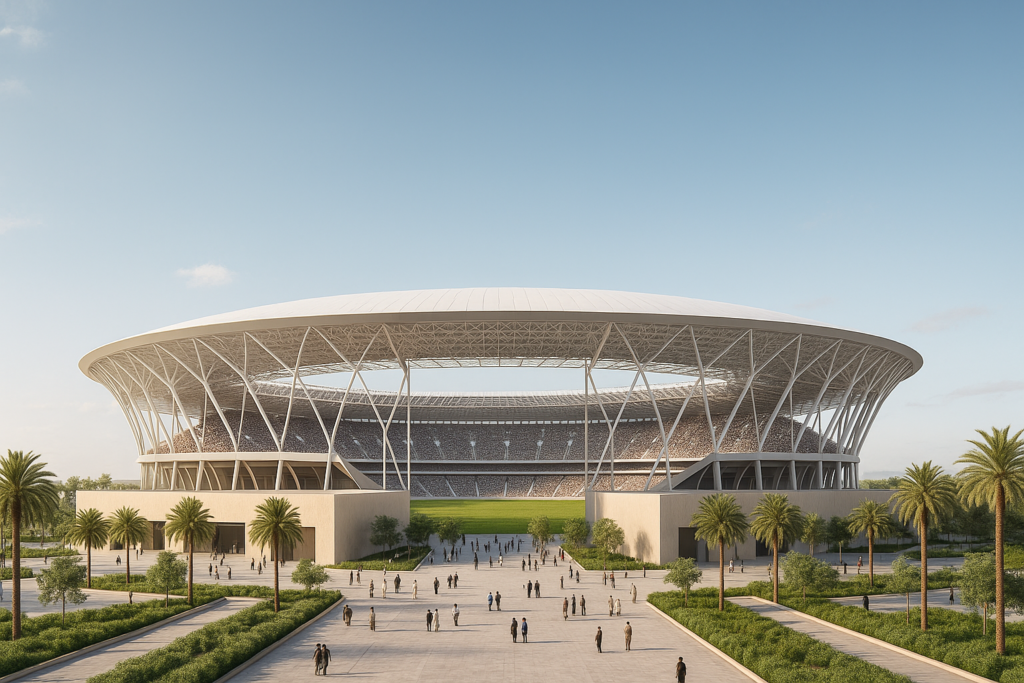The Ministry of Sports, working with the National Center for Privatization (NCP) and the Riyadh Municipality, has opened the Expression of Interest (EOI) and Request for Qualifications (RFQ) phase for the Saudi Sports City Project. This flagship initiative will follow a public-private partnership model covering Design, Build, Finance, Operate, and Maintain (DBFOM) for 20–30 years.
The stadium will rise north of King Abdullah Park in Al-Malaz, Riyadh, with a seating capacity of around 47,000. It is planned as a major venue for the 2034 FIFA World Cup, for which Saudi Arabia holds hosting rights. The master plan also includes upgrading the existing stadium into a fully integrated sports complex.
The upcoming venue will meet international standards and attract top-tier sporting and cultural events. The Sports City master plan will integrate the new facility with upgraded existing infrastructure, creating a modern sports hub.
The stadium will rival world-class arenas such as Wembley in London and Lusail in Qatar. The Al-Malaz location offers easy access via Riyadh’s metro system. This aligns with Vision 2030 goals to diversify Saudi Arabia’s economy through entertainment, tourism, and sports. The design also supports year-round usage, from football matches to concerts and esports tournaments, ensuring commercial sustainability and community engagement.
The Saudi Sports City Project is a milestone in Saudi Arabia’s expanding PPP program, which has already seen success in water, transport, and education sectors. Private investors will deliver the stadium, while public entities provide oversight and ensure compliance with global standards.
Saudi Arabia’s PPP pipeline includes a growing number of projects across multiple sectors, with sports and entertainment emerging as key priorities. This model enables the government to leverage private-sector expertise for quicker project delivery and improved cost efficiency, while easing the financial burden on public budgets. Examples of successful stadium PPPs in Europe and Asia highlight how this approach can deliver sustainable venues that serve both commercial objectives and community needs.
The project will generate both economic and social value. Construction is expected to create hundreds of jobs in engineering, project management, and skilled trades. Indirect employment will rise in tourism, hospitality, and retail.
When operational, the stadium could draw 1.5 million visitors annually. This will boost hotel occupancy, restaurant sales, and retail income. The Ministry of Sports and NCP are inviting domestic and global investors to take part in the Saudi Sports City Project. Eligible participants should have strong experience in developing or managing large-scale sports or entertainment venues.
Applications must be submitted through the NCP’s platform by October 13, 2025.
Source:





